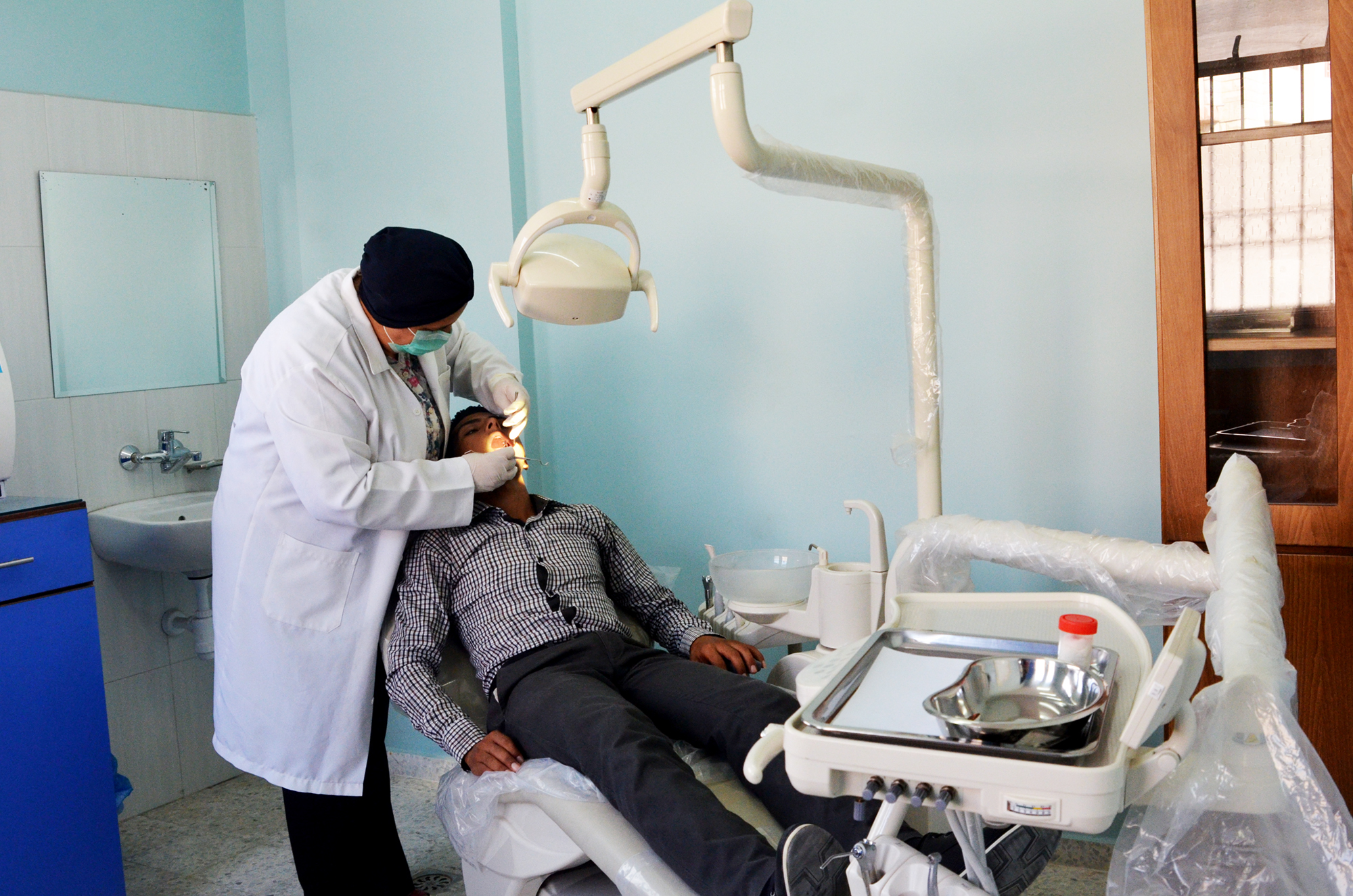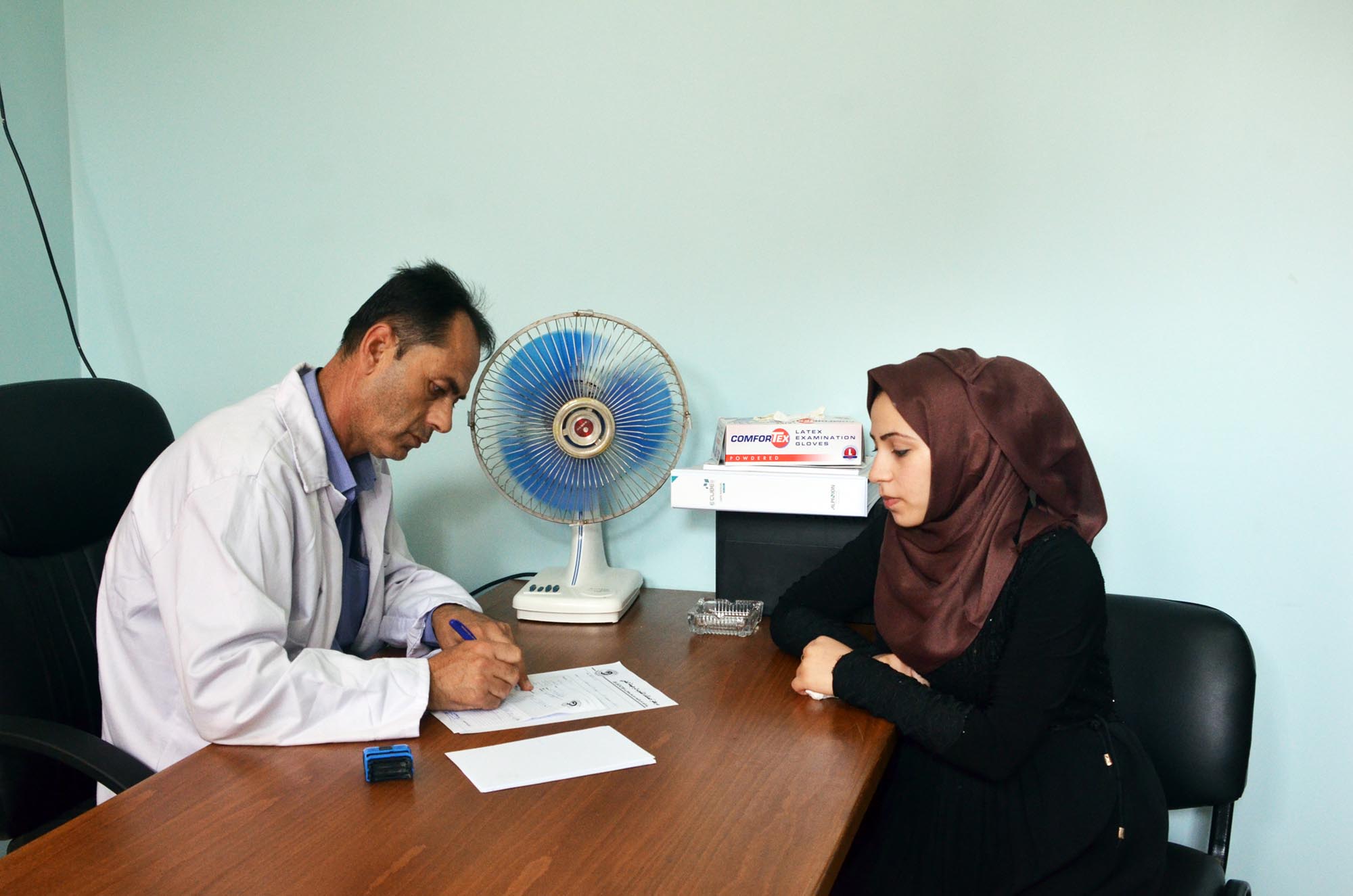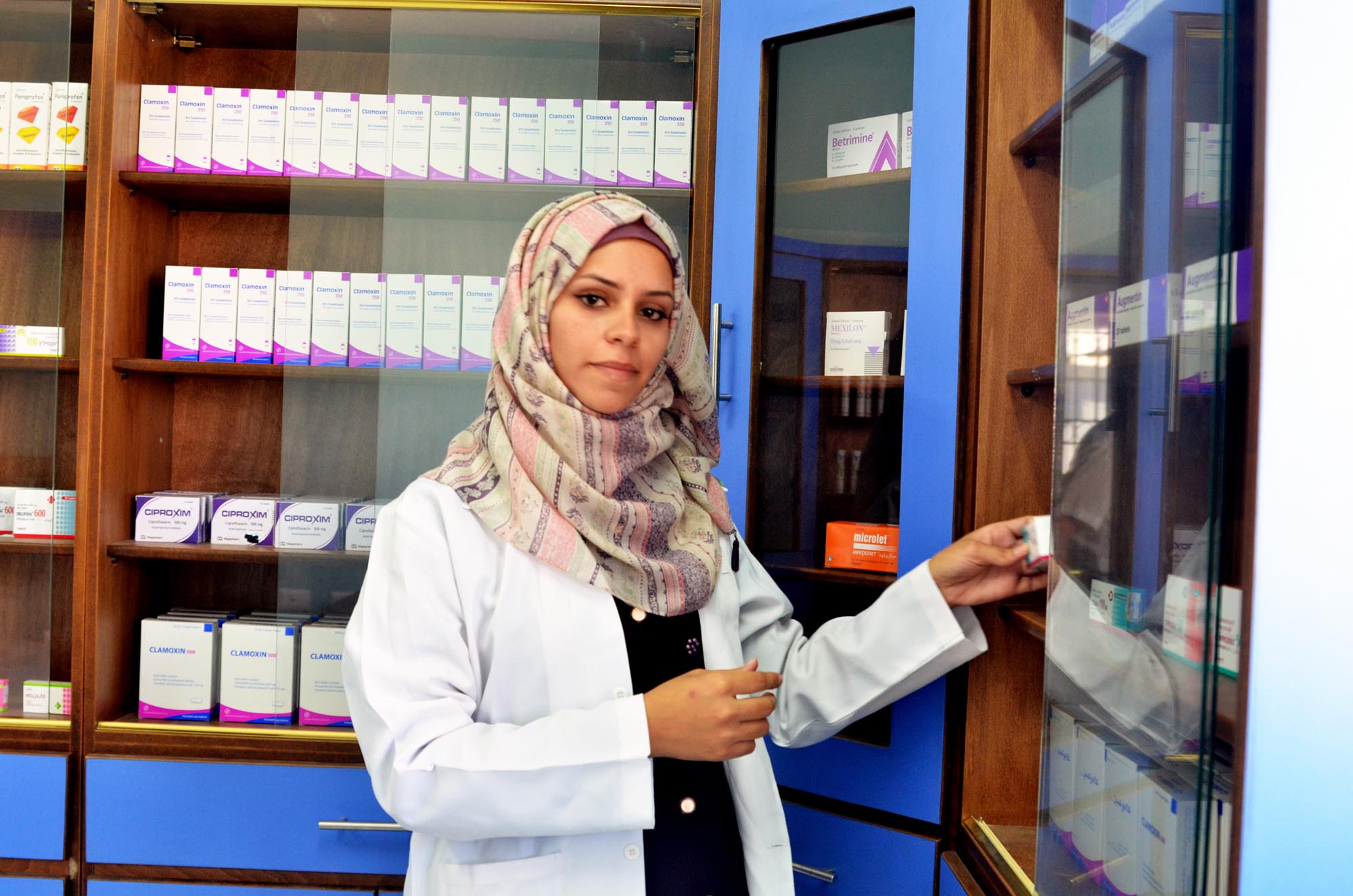Sep, 2018
"This clinic is important because it keeps us healthy and it supports those who suffer the most in our community." - Israa, pharmacist at Beit Lahia clinic
Dental Care is Paramount
Wearing her white dental coat, Dr. Lamis Abu Haloub, welcomes her patients with a smile. She recently returned home to Gaza, after earning a PhD in child oral health in Britain. “This dental unit will benefit the residents. I provide regular check-ups for my patients. Unfortunately, I have observed a high rate of toothaches and infections which is rife in communities that lack proper health care. The cost is unaffordable for many,” she says.
Dr. Abu Haloub’s ambitions go beyond her normal professional duties. She is hoping to create a health education campaign that focuses on promoting good oral hygiene practices in order to decrease cavity infections and prevention through early intervention. “Unfortunately,” she says, “children often do not practice proper oral hygiene, leading to cavities. If not treated in time, it can affect a child’s diet and increase the risk of serious oral health issues.”
For Dr. Abu Haloub, poverty and lack of access to dental care are the chief causes of bad hygiene. Working to lobby health advocates, mothers, and other Palestinian women, she hopes to help improve the conditions that can lead to poor oral hygiene. “I believe women can play a bigger role in promoting this campaign.”
Screening and Monitoring for Antenatal Units
Patient Alia, who lives near the clinic, is in her seventh month of pregnancy. Normally, she would go to a faraway distance and pay 40 shekels for a consultation with an experienced obstetrician to ensure the health and progress of her infant.
The doctor first gave her a physical exam, then an ultrasound to see the progress of her baby.
“Women typically don’t get proper nutrition and frequent pregnancies can affect their bodies. With ultrasound equipment we can monitor women and their babies’ health throughout the pregnancy cycle. This new equipment makes it much easier to monitor the development of the fetus and help doctors detect any abnormalities earlier,” said Dr. Rjab.
Alia left her checkup in good spirits after the doctor had assured her that the pregnancy was proceeding as it should. Although she is anxious about the pregnancy, she takes comfort in the fact that the clinic is accessible and affordable.
Donated Medicine Brings Relief Despite Medicine Shortages in Gaza
Pharmacist Israa describes how Gaza has suffered shortages of essential medicines due to the more than 10 years of blockade. “Pharmacies and other health facilities have particular problems with keeping stocks of chronic medicines and other medicines available,” she says.
Patients would otherwise be lucky to find the medicines they need as it is often way beyond their limited means Chronic medicines are particularly burdensome as they must be purchased regularly. “This donated medicine will help tremendously in the months to come,” Israa added.
Through in-kind donations and medical emergency response, Beit Lahia clinic shelves are filled with painkillers, antibiotics, and other medical supplies that enable the treatment of patients who would otherwise struggle to find treatment.
"This clinic is important because it keeps us healthy and it supports those who suffer the most in our community."
Anera, in partnership with the Kind Hearted Association, inaugurated the Beit Lahia clinic in early 2018. The clinic was built thanks to generous funding from the Khaled Family. The new building offers dental, medical, laboratory, pediatric, obstetric, and other health services, while providing enough space to accommodate new equipment and machines. The clinic makes health care more accessible for patients by reducing the cost of transportation, medicines, and doctor fees.





